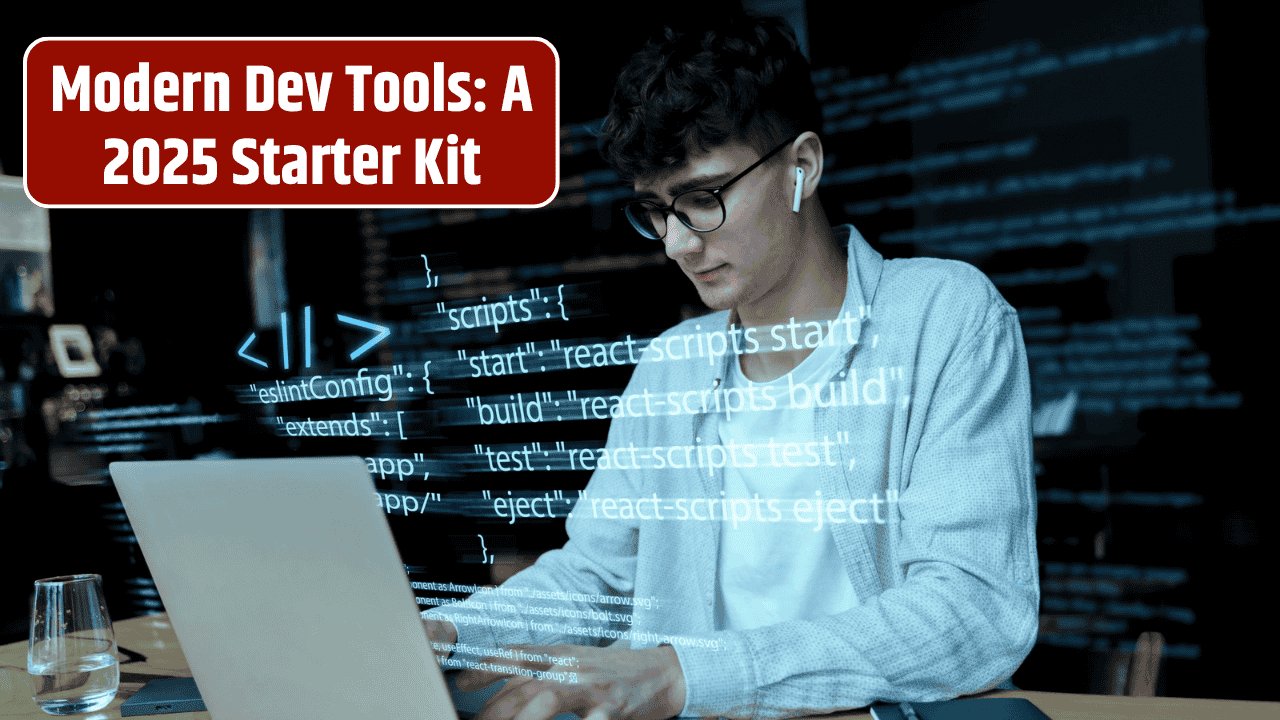Whether you’re just starting out in coding or diving deeper into software development, knowing how to use developer tools is essential. These tools help you write, test, debug, and optimize your code efficiently. As of 2025, developer tools have become more powerful, integrated, and user-friendly—making it a great time for beginners to get started.
Let’s break down the key developer tools every beginner should know in 2025, why they matter, and how to get started with them.
What Are Developer Tools?
Developer tools, or “dev tools,” refer to software and features designed to help developers build and maintain applications. These tools can be browser-based, standalone programs, or part of an integrated development environment (IDE).
Dev tools include everything from code editors and version control systems to browser consoles and debugging tools. Their purpose is to streamline the development process and reduce errors in your code.
Essential Developer Tools in 2025
Here’s a breakdown of the most important developer tools for beginners in 2025:
| Tool Type | Tool Example | Purpose |
|---|---|---|
| Code Editors | Visual Studio Code | Writing and managing code |
| Version Control | Git + GitHub | Tracking changes and collaborating |
| Browser Dev Tools | Chrome DevTools | Debugging and optimizing front-end code |
| Package Managers | npm, Yarn, pnpm | Managing project dependencies |
| Terminal/Command Line | Windows Terminal, iTerm2 | Navigating and controlling your environment |
| API Testing Tools | Postman, Hoppscotch | Testing and debugging APIs |
| Containerization | Docker | Building and running applications in isolated environments |
| Framework Dev Servers | Vite, Next.js Dev Server | Live reloading and local testing |
Code Editors: Your Programming Workspace
In 2025, Visual Studio Code (VS Code) remains the go-to editor for many developers. It’s lightweight, highly customizable, and supports most programming languages out of the box.
Features like IntelliSense (smart auto-completion), built-in terminal, Git integration, and extensions make it beginner-friendly.
Tip: Start by learning basic shortcuts and installing helpful extensions (like Prettier, ESLint, and GitLens).
Version Control: Keeping Track of Your Code
Git is the industry standard for version control, and GitHub is where you’ll often store your projects online.
Version control lets you:
- Save checkpoints of your code
- Revert to previous versions
- Collaborate with others without overwriting each other’s work
In 2025, GitHub Copilot also helps beginners by suggesting code snippets and even whole functions based on your comments or code.
Browser Developer Tools: Debugging Made Easy
Every modern browser—especially Chrome and Firefox—comes with built-in developer tools. These help you:
- Inspect HTML and CSS
- Debug JavaScript in real time
- Monitor network requests
- Test responsiveness across devices
For front-end developers, learning how to use Chrome DevTools is a must.
Package Managers: Handling Dependencies
In web development, you’ll often need to use third-party libraries. That’s where npm (Node Package Manager), Yarn, or pnpm come in.
These tools let you:
- Install packages (like React or Axios)
- Manage dependencies efficiently
- Keep your project organized
pnpm is gaining popularity in 2025 for its speed and disk efficiency.
Terminal & Command Line: Power at Your Fingertips
Using the command line might seem intimidating at first, but it’s a key tool in a developer’s toolkit. You’ll use it to:
- Run scripts
- Install packages
- Push code to GitHub
- Start local servers
Tools like iTerm2 (Mac) or Windows Terminal (Windows) make the experience smooth with themes and split views.
API Testing Tools: Try Before You Code
Building or integrating APIs? Tools like Postman or Hoppscotch allow you to:
- Send test requests
- View responses
- Debug API issues quickly
They’re intuitive and often include collaboration features, making team projects easier.
Containerization: Learn the Basics of Docker
You don’t need to be a DevOps pro to understand Docker. It’s a tool that packages your app and all its dependencies so it runs consistently anywhere.
In 2025, many beginner-friendly tutorials and GUI-based Docker tools are available, making it accessible even if you’re new.
Developer tools are like a modern craftsman’s toolbox. As you grow in your programming journey, these tools will help you write better code, catch bugs faster, and collaborate more effectively. Start small—focus on code editors, Git, and browser tools—then gradually explore more advanced tools like Docker and Postman. The more you use them, the more comfortable they’ll become.
FAQs
What is the best dev tool for beginners?
Visual Studio Code is highly recommended due to its simplicity, versatility, and vast extension marketplace.
Do I need to learn Git right away?
Yes, Git is essential even for solo projects. It teaches good habits and prepares you for real-world development.
Can I use these tools for mobile app development?
Many of them, like VS Code and Git, are cross-platform. You may need additional tools like Android Studio or Xcode for mobile-specific development.
Are browser dev tools the same across browsers?
Not exactly. They share common features, but Chrome DevTools is often preferred for its performance and extensive capabilities.
How long does it take to learn these tools?
With consistent practice, you can get comfortable with basic tools in a few weeks. Mastery comes with time and project experience.









